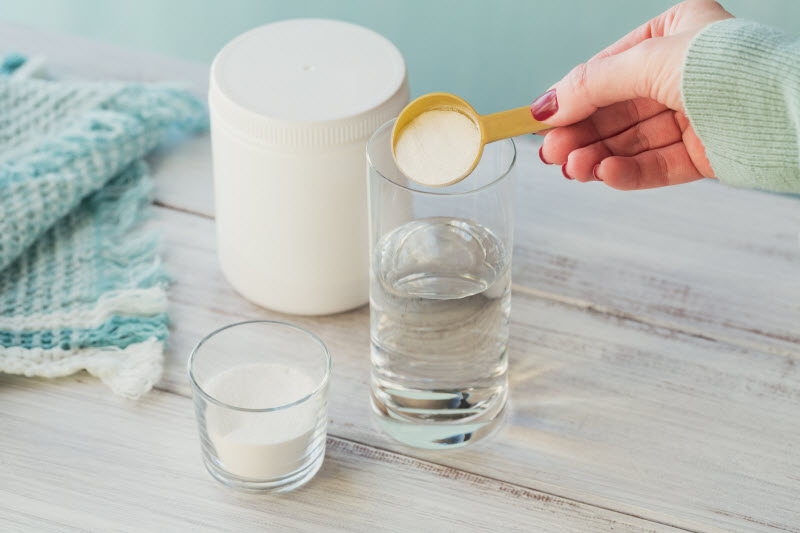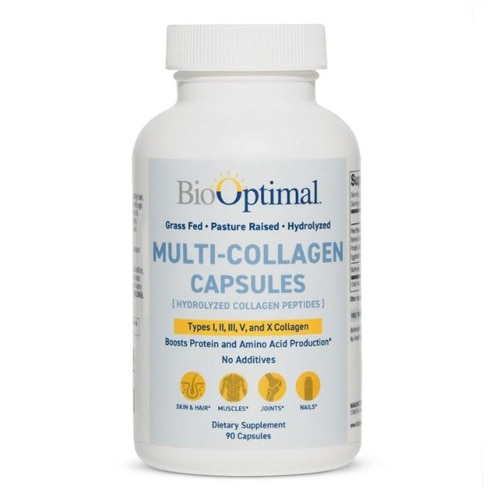[vc_row][vc_column][vc_column_text]If ever there were a Health and Beauty Answer to Everything,
peptides might be it — but it’s too soon to say, and they’re not without risk.
Clinical human
trials on the therapeutic uses of peptides are in their infancy. Much of the research to date has been on animals.
“While peptides have been known for a century, scientists have only recently discovered easy ways to identify them and make them in large enough quantities to be marketable,” says
Dr. Suzanne Ferree, MD, FAARM, ABAARM, senior physician at Vine Medical Associates in Atlanta and author of
Counterclockwise: Using Peptides to Renew, Rejuvenate, and Rediscover. “So that's why you're just now hearing about them.”
Or at least, that's why right now you're hearing about how peptides can do everything from help a hangover to increase your lifespan.

What are peptides?
In the most basic scientific sense, peptides are small proteins. They bind to your cells and affect them in different ways.
“There are literally thousands of peptides being made by your body at this very second, as signaling agents to trigger innumerable processes from temperature regulation and setting your inner clock to recovering from workouts,” Dr. Ferree says.
Peptides often have overlapping effects, and one peptide can even do more than one thing.
You're more familiar with your body's peptide production than you think.
Ghrelin, which signals hunger, is a peptide. So is oxytocin, which stimulates milk let-down for breastfeeding and bonds mother to child and lover to lover (again, a peptide can do more than one thing).
Peptides can also be synthetically manufactured. You're familiar with these peptides too.
Insulin, which regulates blood sugar, is the granddaddy of them, discovered in 1921. Your body produces insulin, but
pharmaceutical companies also started manufacturing insulin, shortly after its discovery, a lifesaver for diabetics.
A contemporary synthetic peptide example is Ozempic, the headlining prescription weight-loss drug (which also helps diabetics, its intended use — multipurpose yet again!).
How do peptides work?
Peptides can act in all sorts of biological ways — as hormones or neurotransmitters, for instance, and are sometimes called as much. Oxytocin is the “love
hormone,” right?
As expected, when we age “our bodies produce less of the youthful peptides and more of those related to aging,” Dr. Ferree says. “So if we can replace the lost peptides with injections, capsules, creams or nasal sprays, often we can restore the more youthful function of our bodies.”
What conditions can peptides affect?
Peptides are purported to have power over so many issues, they might as well be called the (Potential) Swiss Army knife of health, beauty and wellness.
Here's a list of things peptides can address, per Dr. Ferree:
hair loss, wrinkles, sex drive and arousal, fatigue and energy levels, hangovers, immune vitality, joint pain, tendon healing, general recovery after exercise, mood balance, sleep-wake cycle, heart health, intestinal health, endometriosis, osteoporosis, menopausal weight gain, general weight gain, depression, anxiety, aging en toto, the diseases of aging
Peptides also can:
trigger your skin to become darker (a tan without sun!), and ease autoimmune conditions, including multiple sclerosis, rheumatoid arthritis and Hashimoto thyroiditis
Sign you up, right? I stuck to what my expert source shared, but if you noodle around online, you’ll find even more apparent selling points.
What's the best way to use peptides?
The safest and most effective way to try peptide therapy is to consult a board certified physician who works with peptides. They'll know which peptides are expected to work best at treating particular conditions and encouraging certain outcomes.
Equally important, a physician is able to prescribe peptides that are FDA-approved, as opposed to you buying some
concoction you find online. About
80 peptide drugs have been approved worldwide, as of 2022 research. Those approved by the FDA include insulin, Ozempic (semaglutide), sermorelin and Vyleesi (bremelanotide), to name just a few.
Often peptides are used in off-label ways for people to get the therapeutic results they want.
Ozempic for weight loss is an example.
What are the risks of using peptides?
You might be tempted to view peptides as the ultimate fix, but that can be dangerous. Again, a qualified physician should keep you course-corrected.
Consider
anxiety and depression, which are “complicated” conditions, Dr. Ferree notes, but “inflammatory states of the brain,” nonetheless.
“One peptide, thymosin alpha-1, changes the way the inflammatory process occurs in the brain, so when it’s added to a peptide stack, much can be done to ease (anxiety and depression),” she says. “I’m not suggesting those who struggle with depression and anxiety stop their prescribed medications, but this may be a way that a provider could help you actually treat what’s wrong instead of the symptoms.”
And peptide use can come with consequential side effects, a point of fact a qualified medical professional is sure to warn.
For example, peptides you take for tissue repair might help heal an injury (yay!) — but also increase growth of a tumor (definitely not yay). In other words: The downside of a peptide being able to do more than one thing is that a peptide can do more than one thing.[/vc_column_text][/vc_column][/vc_row][vc_row][vc_column][vc_text_separator title="Featured Products" border_width="2"][vc_row_inner equal_height="yes" content_placement="middle" gap="35"][vc_column_inner width="1/3"][vc_single_image image="178293" img_size="full" alignment="center" onclick="custom_link" img_link_target="_blank" css=".vc_custom_1727363984735{padding-right: 7% !important;padding-left: 7% !important;}" link="https://www.vitacost.com/forestleaf-advanced-collagen-peptides-grass-fed"][/vc_column_inner][vc_column_inner width="1/3"][vc_single_image image="178292" img_size="full" alignment="center" onclick="custom_link" img_link_target="_blank" css=".vc_custom_1727364004337{padding-right: 7% !important;padding-left: 7% !important;}" link="https://www.vitacost.com/nunaturals-collagen-peptides-from-pasture-raised-cattle"][/vc_column_inner][vc_column_inner width="1/3"][vc_single_image image="178291" img_size="full" alignment="center" onclick="custom_link" img_link_target="_blank" css=".vc_custom_1727364090461{padding-right: 7% !important;padding-left: 7% !important;}" link="https://www.vitacost.com/claras-new-york-repairing-peptide-facial-serum"][/vc_column_inner][/vc_row_inner][/vc_column][/vc_row]




